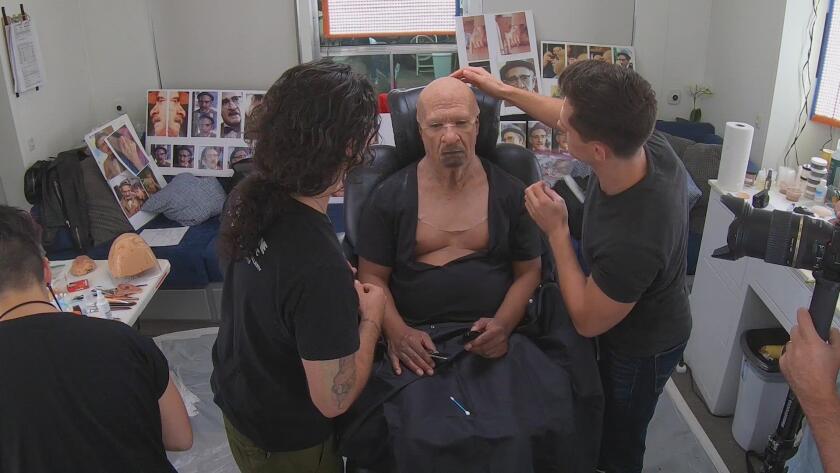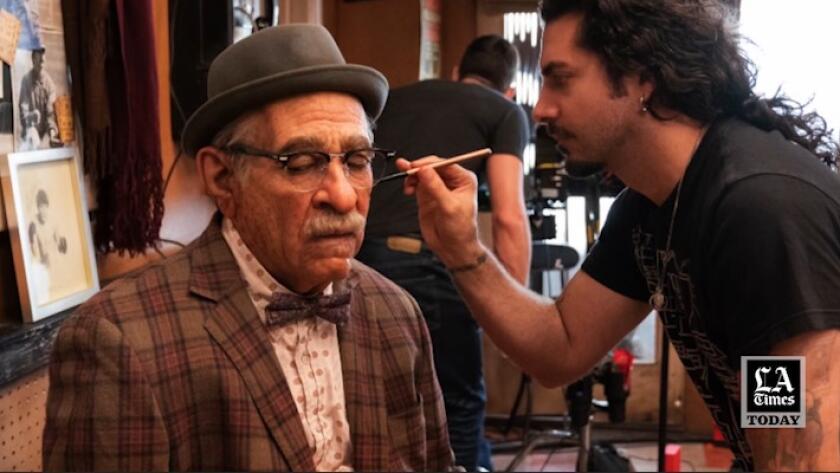- Share via
- Share via
Mike Marino still remembers how he first met legendary makeup artist Rick Baker.
“It was at the very first makeup trade show,” he tells Baker, grinning at the memory. Marino thinks it was the late 1990s. “I was 20 or something. I showed you my [portfolio], and you looked through it and really liked it. You pointed out a few drawings: ‘This is really cool, this is really cool.’”
The two men are on a video call — Baker from his home in Los Angeles, Marino in a West Hollywood hotel — catching up and reminiscing about old times. Marino, about 25 years Baker’s junior, got into makeup because of heroes like Baker, working with the seven-time Oscar winner for the first time on “Men in Black 3.” Ever since, they’ve stayed in touch, their paths converging in recent years because of a ceremonial passing of the torch — or, rather, brush. When Eddie Murphy started prepping “Coming 2 America,” the long-hoped-for sequel to the 1988 hit, Marino went up for the job. But after Marino was hired, he had one condition.
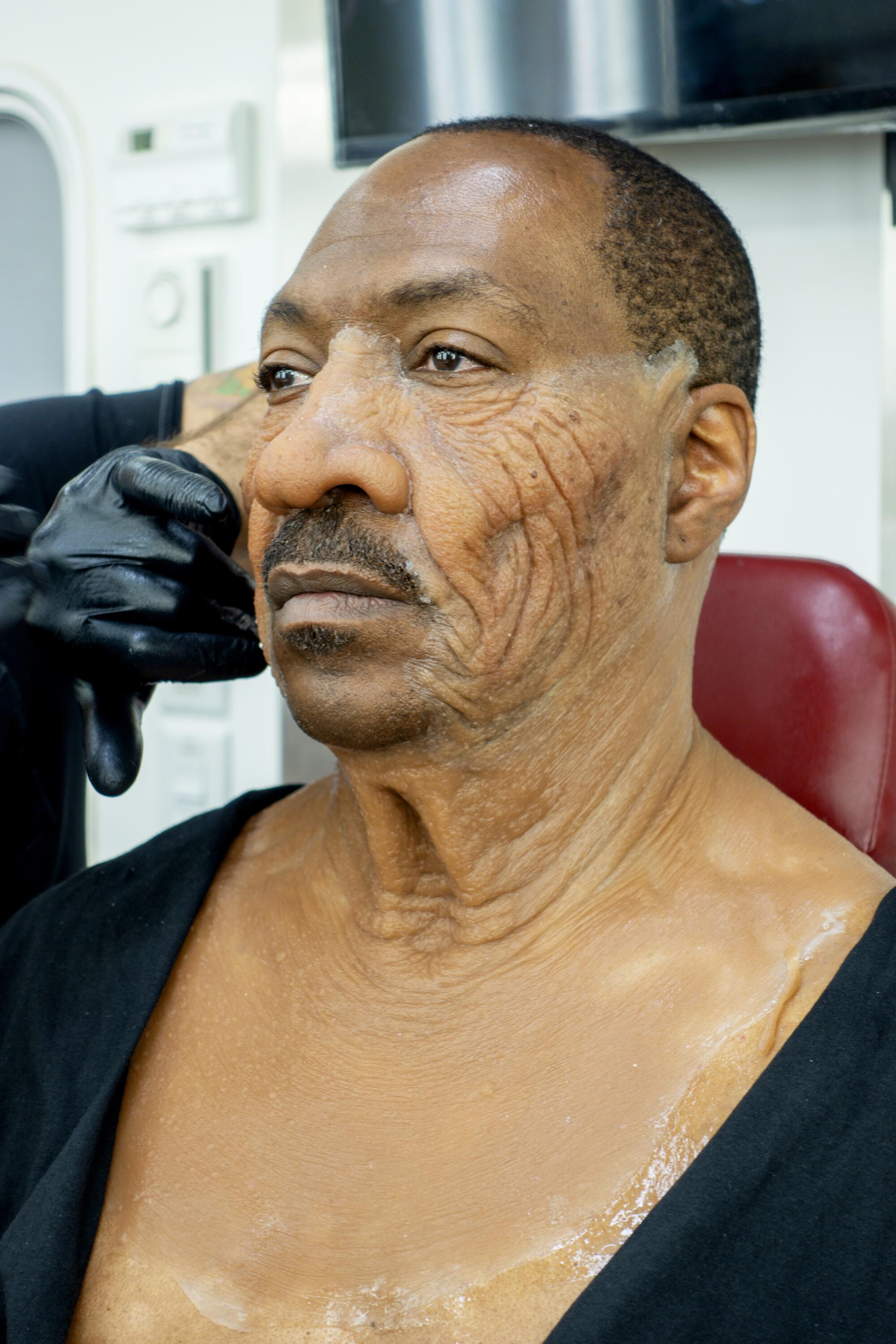
“I said, ‘I’m not going to do this job unless Rick Baker says that it’s OK for me to do this job,’” Marino says. After all, it was Baker who created the makeup for the original’s vivid side characters whom Murphy and Arsenio Hall brought to life, including the wisecracking old-timers at the My-T-Sharp barbershop. The original “Coming to America” began a fruitful partnership between Baker and Murphy — they subsequently collaborated on the “Nutty Professor” films and “Norbit” — and now that Baker had retired, Marino sought his blessing.
“I have so much respect for Rick,” says Marino. “It was his designs, and it was his work. And Rick said, ‘Yes, it’s cool. Just do it and kick ass.’” (“I was impressed and pissed off at the same time,” Baker says, laughing, about Marino’s makeup on the sequel. “‘This f—ing guy’s showing me up.’”)
There was no such audition process when Baker came aboard “Coming to America.” “Eddie was like, ‘You’re the guy that knows faces and stuff — just make it look great,’” recalls Baker, who won the first competitive makeup Oscar for “An American Werewolf in London.” When Marino is asked if it took time on “Coming 2 America” for Murphy to warm up to the “new guy” — albeit a veteran who’s worked on “The Irishman” and the cover of the Weeknd’s recent album “Dawn FM” — he smiles. “I think he called me Rick a couple times.”
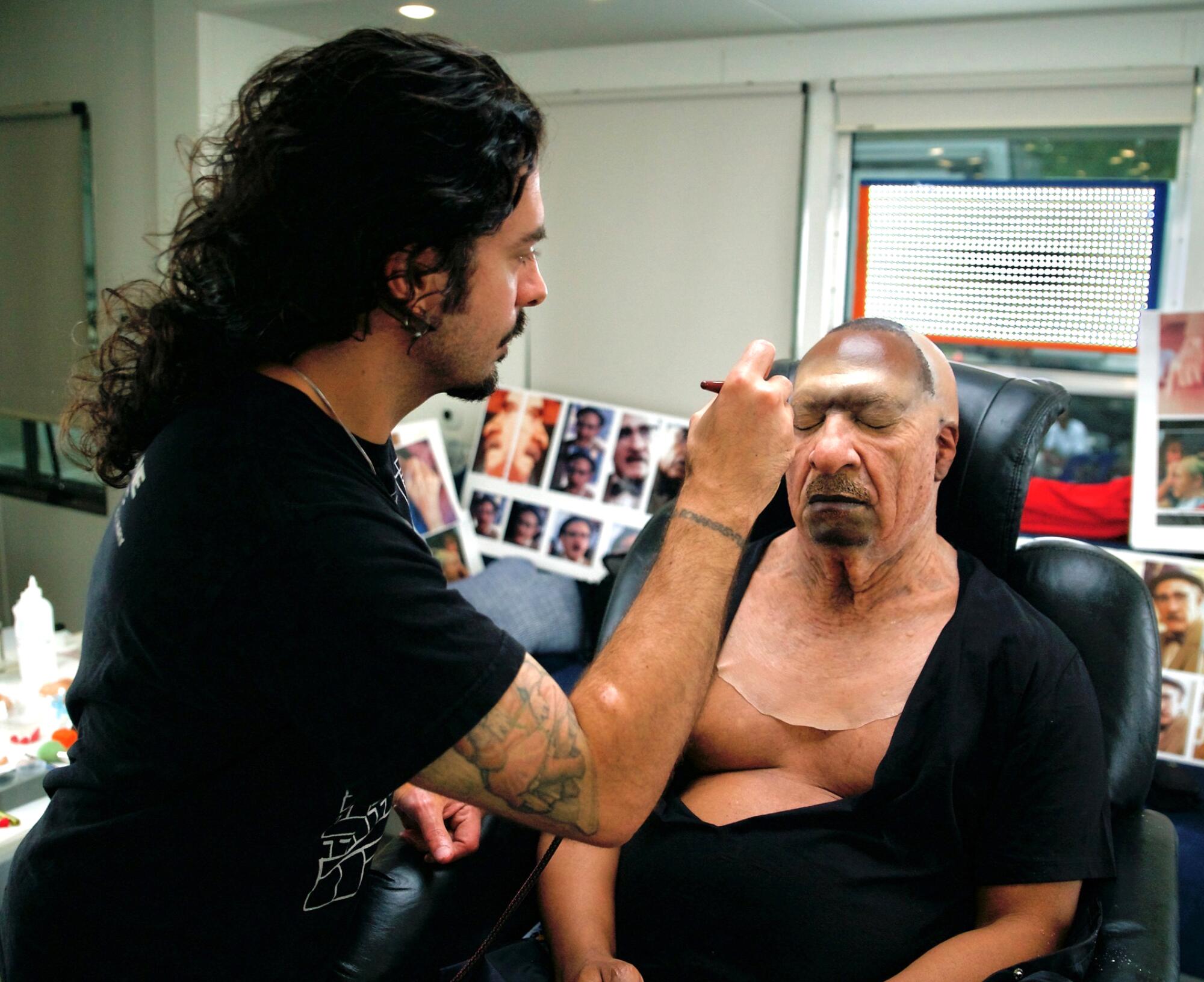
The two artists commiserate over the “Coming” character who gave them both the most trouble: Saul, the opinionated Jewish man, played by Murphy, who hangs out at the barbershop. “Doing a realistic person makeup is the hardest kind of makeup to do,” Baker says. “And to change a race like that — I mean, Eddie is obviously a Black man and Saul was a Jewish man. I was a little lost when I first started, but my father-in-law, who’s not Jewish — he’s actually from South America — was the right age. I life-cast him and sculpted the new face on Eddie.”
The challenge was only compounded for Marino, who had to figure out how these colorful codgers would have aged since the last film. (“They should have been dead,” Baker says, chuckling.) But it wasn’t just the characters that had gotten older. “As far as Eddie’s face and Arsenio’s face, they’re different now,” Marino notes. “I could never get them to look like Rick’s makeups. They still look remarkably young, but their faces and their shapes are different, their posture’s different. Plus, Eddie’s hair in the original was bigger.”
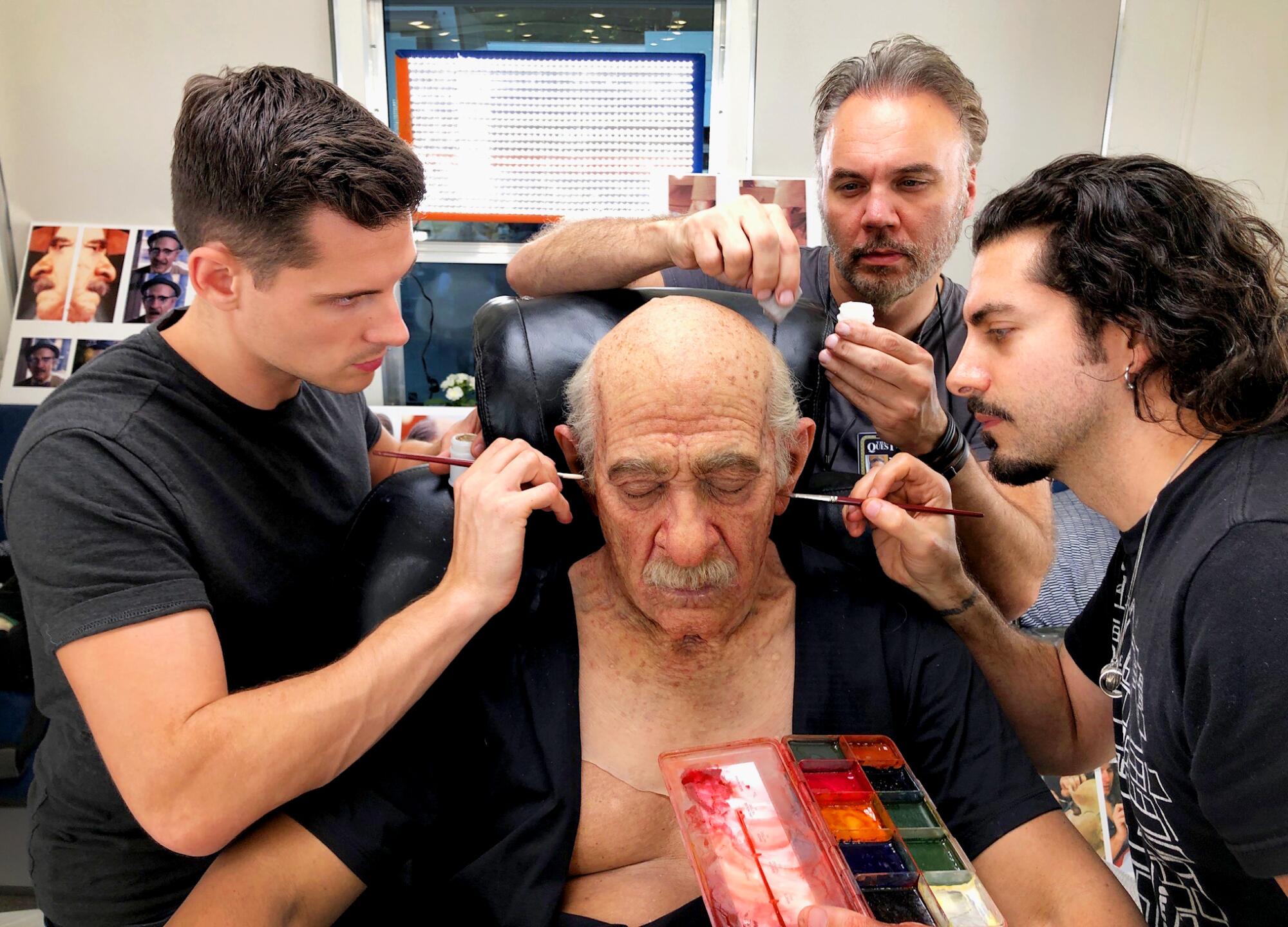
Marino thinks one of the reasons he landed “Coming 2 America,” recently named to the Oscar shortlist for hairstyling and makeup, was that he’s long preached Baker’s gospel about realistic makeup. “Rick always said, ‘If it looks real in person, it’ll look good on film,’” Marino says. In turn, Baker credits his mentor Dick Smith, the godfather of movie makeup, responsible for the look of films such as “The Exorcist.” “I was so amazed when I saw Dick’s work,” recalls Baker. “It was far beyond anybody else’s as far as the reality. You could tell that he cared — he wasn’t just doing it as a job.”
Some of the technology around shooting the barbershop scenes has gotten more sophisticated since the original movie. For “Coming to America,” filmmaker John Landis actually used Baker’s father-in-law as a stand-in for Saul on camera when Murphy’s other character, shop owner Clarence, was speaking. (“There were no effects, no split screens,” says Baker. “If anybody ever sees the film again, they should watch for those shots.”)
In the sequel, director Craig Brewer incorporated motion-control to seamlessly meld the different characters in the same scene. And although Marino uses silicone, whereas Baker relied on foam latex, the basics of makeup haven’t changed much.
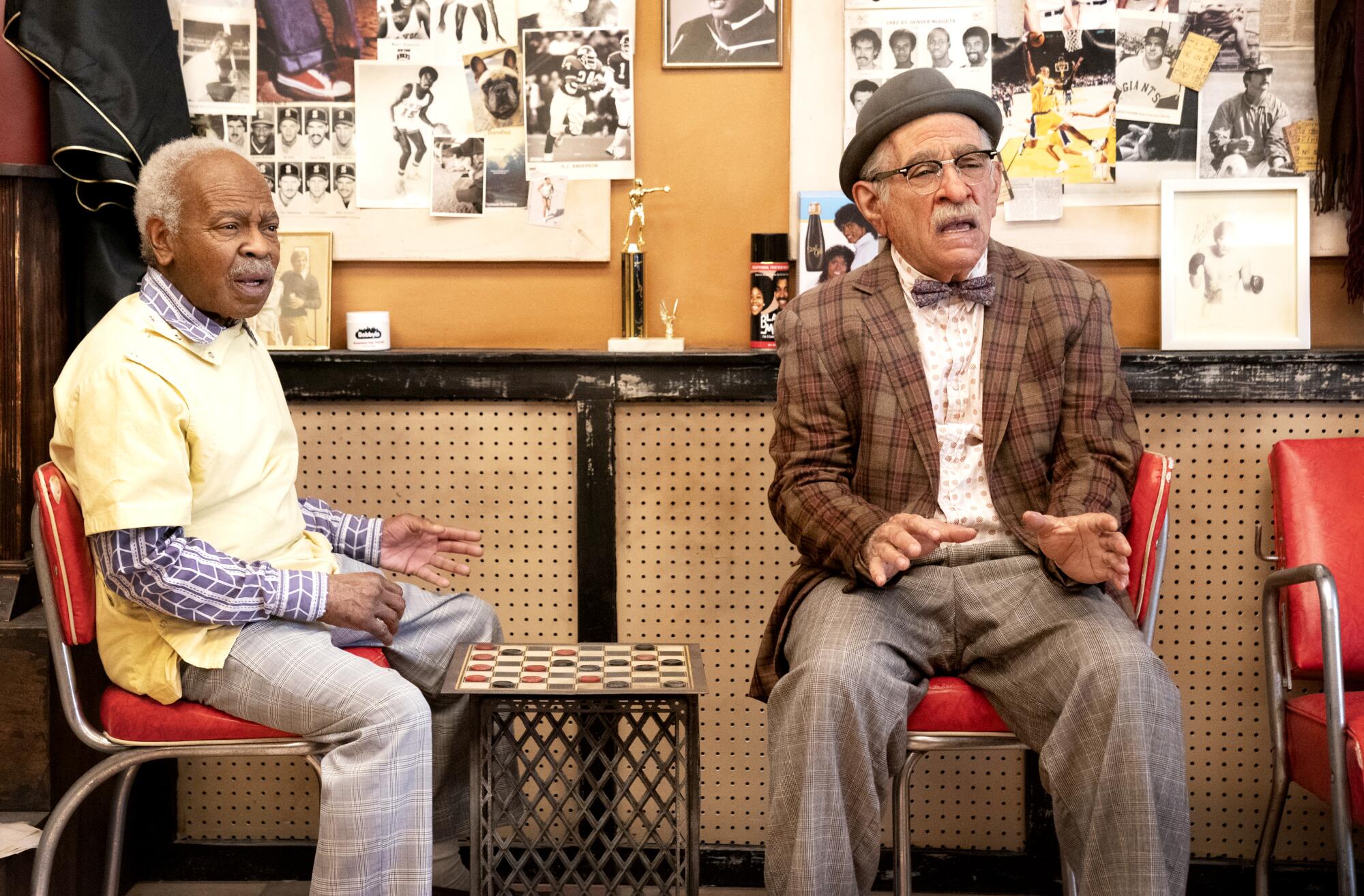
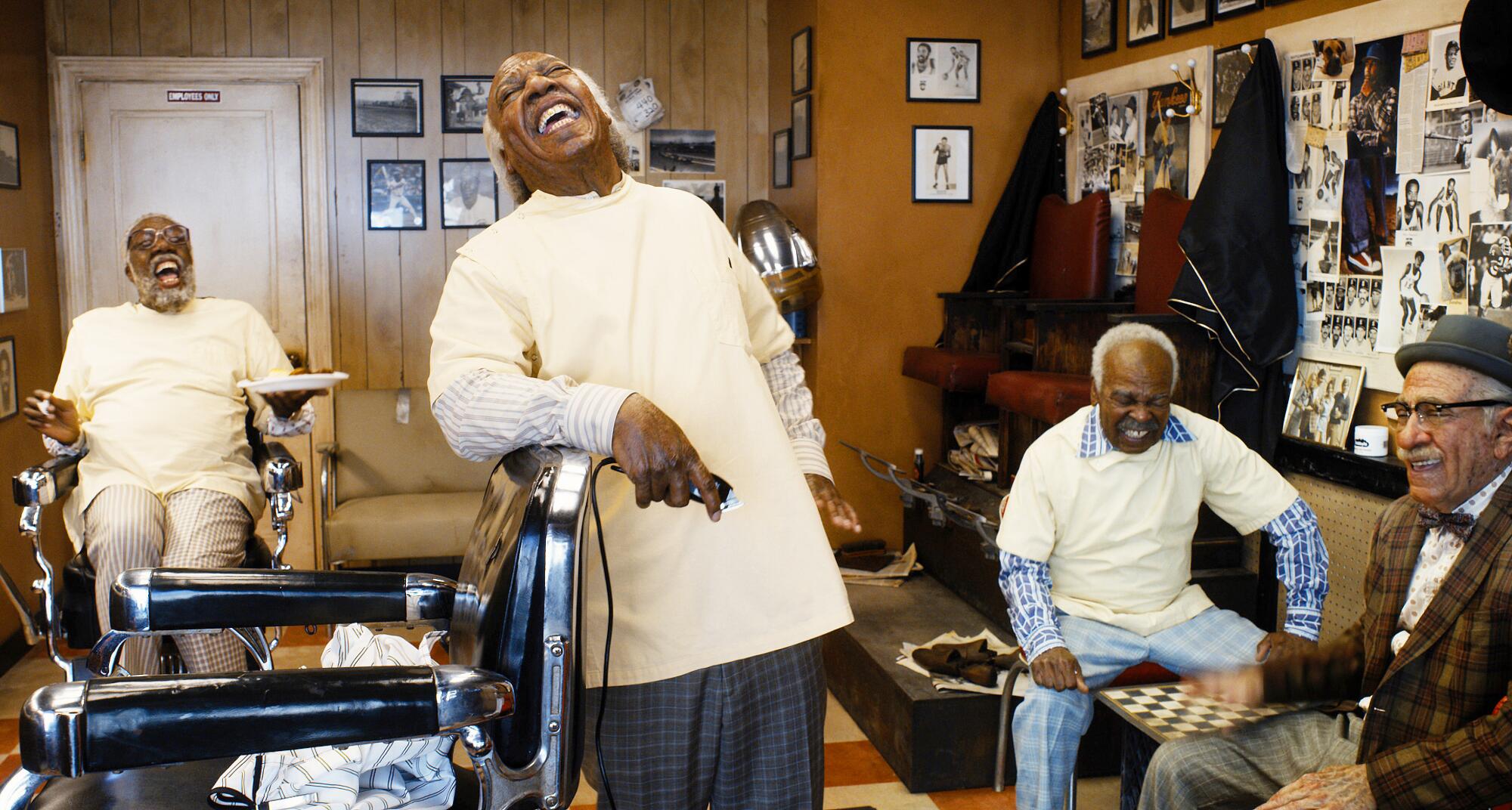
“It still takes a long time,” says Marino, who notes that each character’s makeup requires multiple hours. “I mean, you’re actually physically doing something on someone, and you’re doing such elaborate stuff. There are different materials, but it doesn’t really make it faster.” Still, it must be bittersweet for Baker to watch another artist take his work and run with it.
“It’s weird to see characters that you designed 30 years ago alive again, but you didn’t do them,” Baker admits. But he feels nothing but pride for Marino, who dreamed about joining this profession ever since meeting his idol decades earlier.
“I was happy to pass it to Mike,” Baker says. “I knew he was going to knock it out of the park.” He laughs. “Or I would’ve beat the s— out of him.”
- Share via
Watch L.A. Times Today at 7 p.m. on Spectrum News 1 on Channel 1 or live stream on the Spectrum News App. Palos Verdes Peninsula and Orange County viewers can watch on Cox Systems on channel 99.
More to Read
From the Oscars to the Emmys.
Get the Envelope newsletter for exclusive awards season coverage, behind-the-scenes stories from the Envelope podcast and columnist Glenn Whipp’s must-read analysis.
You may occasionally receive promotional content from the Los Angeles Times.
